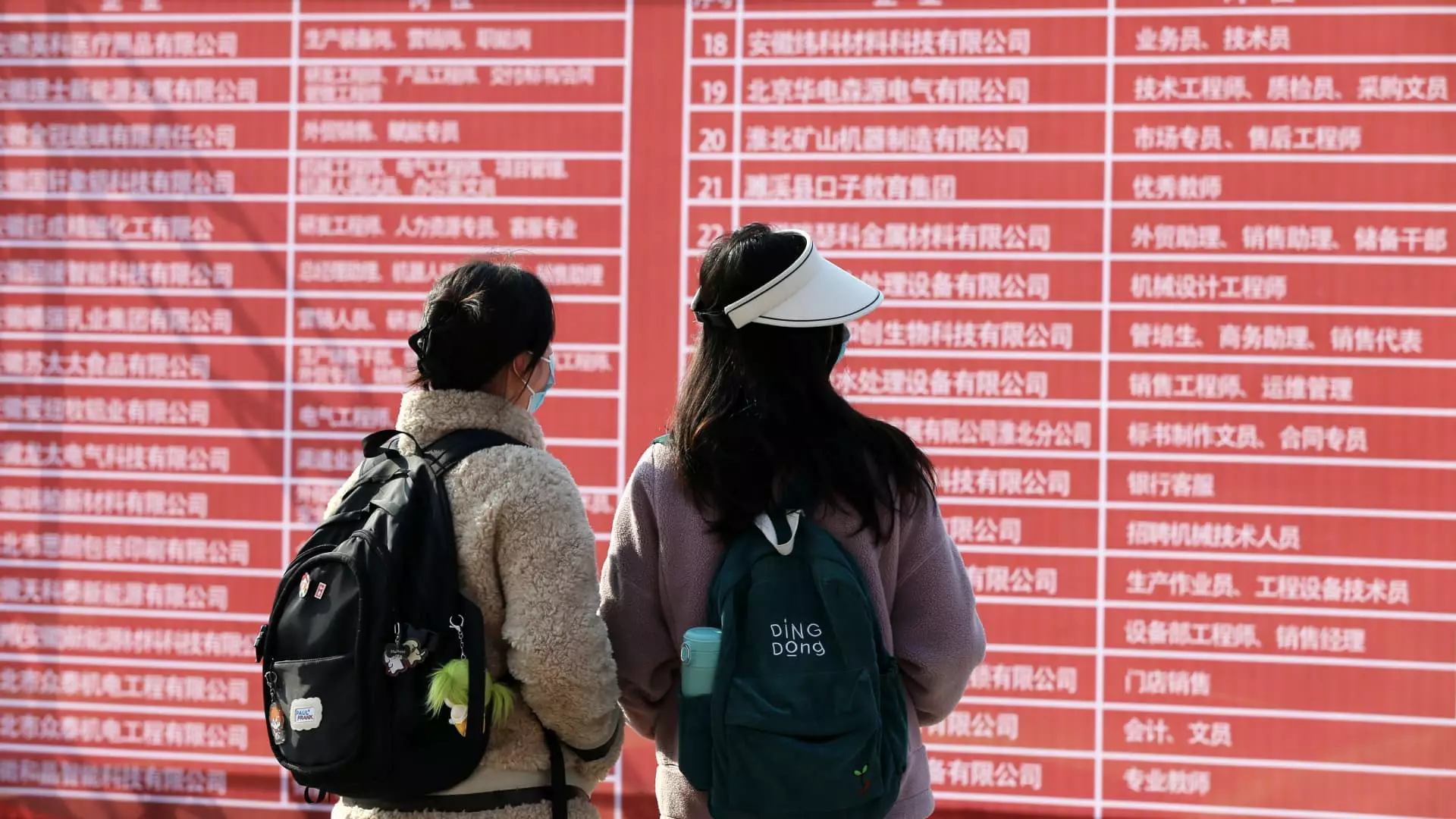In China, the youth are facing an increasingly tough labor market, which is leading them to explore unconventional methods in their job searches. Young people in China are struggling with fierce competition and a scarcity of job opportunities, prompting them to think outside the box when it comes to finding employment opportunities.
The Rise of Tinder in Job Searches
In a surprising turn of events, young job seekers in China are turning to the dating app Tinder as a tool for finding job opportunities. Individuals like Jade Liang, a master’s student in Shanghai, are resorting to Tinder after experiencing challenges in securing a job through traditional methods. Liang, who aspires to join the tech industry, found that swiping right on individuals in her desired field helped her connect with fellow professionals for casual coffee chats.
China, being the world’s second-largest economy, is currently struggling with youth unemployment, which hit a record high of 21.3% in June. The impact of the economic downturn, the pandemic, and the consolidation of industries have exacerbated the challenges faced by young job seekers in China. With unemployment rates significantly higher than that of the United States, the youth population in China is feeling the effects of the tough labor market.
The use of Tinder for job hunting is not limited to just China but is also a global phenomenon. Job seekers like Joy Geng, a recent graduate based in Beijing, have found using Tinder as a networking tool to be beneficial in connecting with professionals in their industry of interest. While Tinder is primarily a dating app, it has become a platform for job seekers to expand their network and explore potential job opportunities.
The Debate Surrounding Tinder as a Job-Hunting Tool
While some job seekers have found success using Tinder as a job-hunting tool, there are mixed opinions on the practice. Tinder itself discourages the use of its platform for business purposes, emphasizing that it is meant for personal relationships. Critics argue that job hunters using Tinder may not always have genuine intentions and may tarnish the app’s reputation among users seeking romantic connections.
Employer’s Perspective on Tinder Job Seekers
From an employer’s perspective, finding a job opportunity through Tinder may indicate that an applicant possesses strong social skills and can make a positive impression on networking contacts. However, some employers may view job seekers who use Tinder as less efficient compared to traditional job-hunting methods. While the approach may work for international companies or internet giants, it may not be well-received by all employers, especially state-owned companies.
Differences in Tinder Usage Across Countries
The effectiveness of using Tinder as a job-hunting tool may vary from country to country. While it is predominantly used by highly educated professionals in China for networking purposes, Tinder has a different reputation in countries like France, where it is more commonly associated with finding sexual partners. Despite cultural differences in Tinder usage, the app can still serve as a valuable networking tool for professionals seeking job opportunities.
The rise of youth unemployment in China has led young job seekers to explore unconventional methods like using Tinder for job hunting. While the practice may raise mixed opinions and skepticism, some individuals have found success in connecting with professionals in their desired industries through the dating app. As the job market continues to pose challenges for young people in China, innovative approaches like using Tinder may offer new possibilities for securing employment opportunities.


Leave a Reply